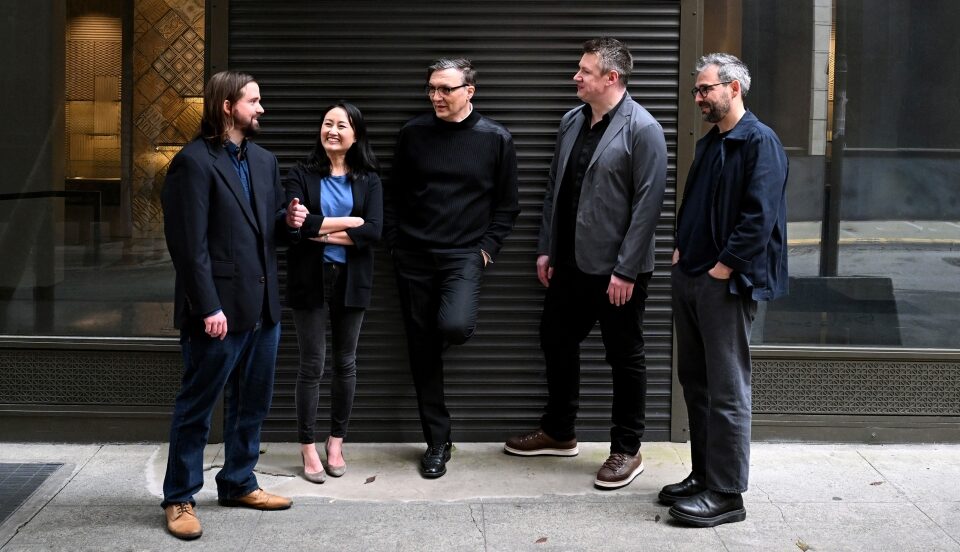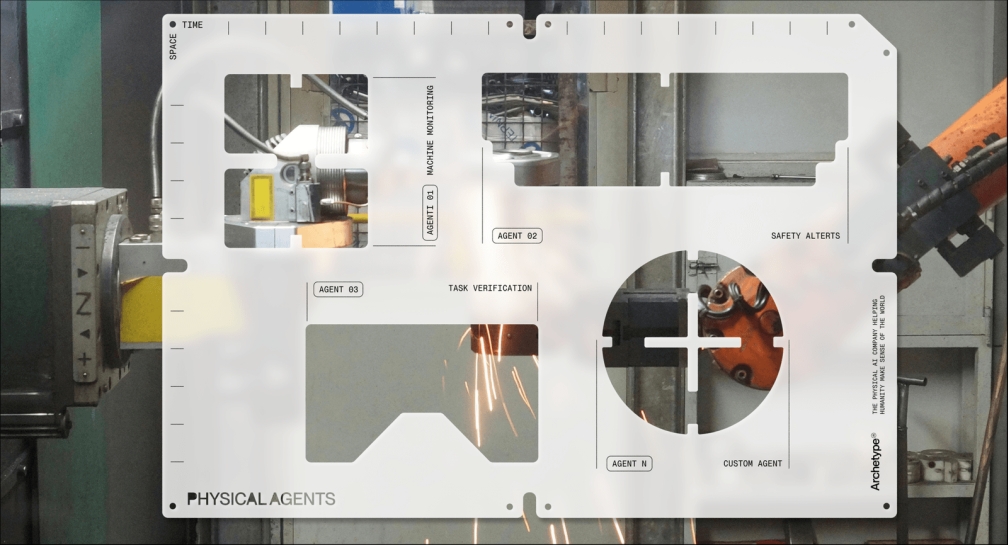Archetype AI raises $35M to bring physical AI agents to the real world, claims breakthrough over GPT-5 and Gemini

AI startup Archetype AI is trying to solve one of the hardest problems in modern automation: giving machines the ability to read the physical world with the same fluidity that software agents read a webpage. And the company now has fresh backing to push that vision forward.
The Physical AI startup announced a $35 million Series A, drawing support from IAG, Hitachi Ventures, Bezos Expeditions, Venrock, Amazon’s Industrial Innovation Fund, Samsung Ventures, Systemiq Capital, E12 Ventures, Higher Life Ventures, and others. The new funding comes as industries with real-world operations—construction, logistics, manufacturing, public safety—look for practical ways to bring agentic AI off the screen and into environments filled with noise, motion, and uncertainty.
Archetype is introducing a new class of “Physical Agents,” real-time AI applications that read sensor streams, interpret what’s happening, and act on those events with minimal setup. The company says these agents can turn raw signals from machines, cameras, and other edge devices into insights within minutes through natural language prompts and a lightweight API flow.
The agents run on Newton, Archetype’s foundation model built for physical data. Unlike digital agents that work with structured text or UI elements, Newton ingests combined sensor signals, video, and contextual information from real-world environments. The goal is to give enterprises a way to ask open-ended questions—“What is this machine doing right now?” or “Did the worker complete the required steps?”—and receive direct answers grounded in live physical activity.
Physical AI Gains Momentum: AI Startup Archetype AI Raises $35M and Launches Newton-Powered Agents for Real-World Operations

Archetype is pitching its platform as a counterpoint to traditional industry AI, which often depends on custom models built for narrow use cases. Those approaches take significant time, skilled engineering, and extensive datasets. In contrast, Archetype aims to provide a general foundation model that adapts across scenarios without rebuilding the system each time.
The company is pairing its model with Agent Toolkit, a no-code environment for assembling and deploying agents. These agents can track machine operations in factories, verify tasks on job sites, or monitor safety conditions based on rules expressed through everyday language. Archetype says these templates can be deployed quickly, even for teams without ML expertise, and can run on a private cloud, on-premise, or at the edge for organizations that require tighter data control.
Early customers include NTT DATA, Kajima, and the City of Bellevue, which have used Physical Agents in warehouses, construction zones, and municipal infrastructure. The reported results center on fewer unsafe conditions, clearer visibility into operations, and faster issue detection—areas that traditional monitoring tools often struggle with.
“Physical Agents allow businesses to move from intent to action with speed and efficiency that were not previously possible,” Ivan Poupyrev, Co-founder and CEO of Archetype AI, said in a statement. He added that the combination of Newton and the platform “makes it simple to build and deploy customer-specific solutions that solve their critical problems by using specific knowledge about their physical operations — here and now.”
Archetype is also releasing new research tied to Newton. The company says its model can perform “physical signal-language fusion,” meaning it can generate continuous sensor time series from a language description. In internal benchmarks shared with TechStartups.com, Newton outperformed significantly larger models—including GPT-5, Sonnet, Gemini, GLM, and DeepSeek—on physical sensor-language tasks. The research hints at an emerging category: AI systems that can reason about the physical world with the structure and generality that today’s LLMs apply to text.
The new funding will go toward scaling the platform, expanding agent capabilities, and advancing Newton’s core physical intelligence. Archetype says more features will open up during the beta period as the company works with enterprise partners to test broader real-world scenarios.
For industries that still rely on siloed dashboards, manual reporting, or rules-based detection systems, the promise of Physical AI is straightforward: real-time situational awareness grounded in what’s actually happening on the ground, not just what’s logged in software.




